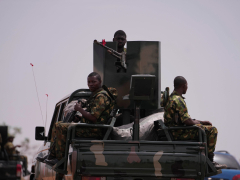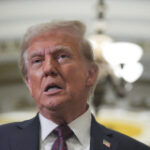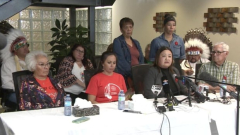A new armed group called Lakurawa is attacking villages in remote corners of northwestern Nigeria and across the border in Niger, posing new threats to two countries that already suffer from protracted conflict involving several other groups, including Boko Haram.
In November, the Nigerian army acknowledged for the first time the existence of Lakurawa and said its members were operating from headquarters in the country’s Sokoto and Kebbi states.
Attacks by the group have killed dozens of people, and at least nine suspected members are known and have been declared wanted by the Nigerian army.
The northern region is one of the hottest beds of violence in Nigeria, with its states experiencing a toxic mix of armed attacks, kidnappings and banditry in recent years. The Nigerian army has also been grappling with a long-running battle with the Boko Haram armed group in the northeast for more than a decade.
Strained relations between Nigeria and Niger, stemming from Niger’s coup d’etat in July 2023, have also affected joint military operations and given the Lakurawa group more room to expand, officials say.
Here’s what to know about the group:
Who is Lakurawa?
According to Nigerian army officials, Lakurawa fighters are believed to originally be from troubled Mali, a Sahelian country that’s currently under fire from a swarm of transnational armed groups seeking territory to govern.
Groups like Jama’at Nusrat al-Islam wal-Muslimin (JNIM) and ISIL affiliate in the Greater Sahara are some of the armed groups destabilising Mali.
Officials in Nigeria say Lakurawa members are affiliated with the Malian groups but have for years settled in communities along the Nigeria-Niger border, marrying local women and recruiting youth.
Researchers tracing the origin of the group, however, note that its members have not just begun operating. Originally, Lakurawa members were herdsmen who would carry rifles for protection.
They formed an organised armed group after local leaders in rural communities of Gudu and Tangaza, in Nigeria’s Sokoto State, invited them to help tackle armed bandits who were then raiding communities for money and cattle, and who helped prompt a kidnapping crisis in Nigeria.

Remote communities in the country are often ungoverned due to the inadequacies of the country’s local and state governments, allowing crime to thrive. The local leaders in Sokoto wanted Lakurawa fighters to battle the bandits and protect the communities.
Lakurawa members were able to dislodge the bandit threat between 2016 and 2017 and were paid for their work. However, the group’s members soon turned on communities, too. They fell out with one of the local leaders who had invited them and murdered him.
Most Lakurawa fighters are believed to be between 18 and 50 and speak Fulfulde, Hausa, and Arabic, according to the think tank, Nigerian Institute of International Affairs. Fulfulde is primarily spoken by the Fulani group whose members are spread across West Africa.
The Nigerian military said it had identified some of the group’s leaders: Abu Khadijah, Abdulrahaman (Idi), Dadi Gumba, Muhammed Abu, Usman Shehu, Abu Yusuf, Musa Walia, Ibrahim Suyaka, Ba Sulhu, and Idris Taklakse.
What do they want?
In its announcement in November, the Nigerian military sai





